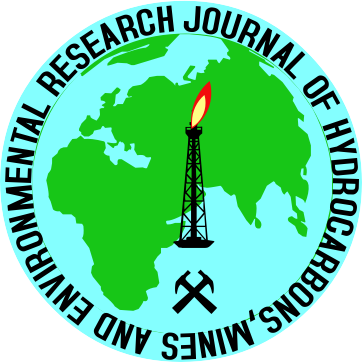JOURNAL OF HYDROCARBONS MINES
AND ENVIRONMENTAL RESEARCH
__________________
 |
©
Journal of Hydrocarbons Mines and Environmental Research, ISSN: 2107-6510,
Volume 5, Issue 1, June 2014, 46-51 __________________________________________________________________________________________________ |
A community-based rainwater monitoring and treatment programme in Grahamstown, South Africa
Roman Tandlich *, Catherine D. Luyt and Nosiphiwe P. Ngqwala
Environmental Health and Biotechnology Research Group, Division of Pharmaceutical Chemistry, Faculty of Pharmacy, Rhodes University, P.O. Box 94, Grahamstown , South Africa
*corresponding author : R.tandlich@ru.ac.za ; roman.tandlich@gmail.com (R. Tandlich)
Received: 28 January 2014 - Accepted: 5 April 2014 - Available online: 5 April 2014
Abstract: South Africa is a water scarce country and its potable water supply suffers from problems such as pipe breaks and interruption of supply. This forces a large part of the population to use rainwater for domestic consumption. In this climate, the current paper investigated the design of information tools about the source of rainwater contamination and the use of the modified hydrogen-sulphide test kit to detect the faecal contamination of rainwater. An information pamphlet was designed about the contamination sources of rainwater and the use of the modified test kit. It was then successfully used by the NGO volunteers to detect faecal contamination in rainwater tanks. The modified hydrogen-sulphide test kit and a combination of the E. coli enumerations correctly identified microbial water quality problems. These were then remedied through collaboration between the authors and the community volunteers. The rate of correspondence between the m-TEC E. coli enumeration and the hydrogen-sulphide test kit was 71%.
Keywords: The hydrogen-sulphide test kit, bleach
addition, m-TEC agar, E. coli, community-based programme.
Surveillance de l'eau de pluie à base communautaire et programme de traitement à Grahamstown, Afrique du Sud
Résumé: L’Afrique du Sud est un pays pauvre en eau et son approvisionnement en eau potable souffre de problèmes tels que des ruptures de canalisations et l'interruption de l'approvisionnement. Cela oblige une grande partie de la population à utiliser l'eau de pluie pour la consommation domestique. Dans ce climat, le présent document a étudié la conception d'outils d'information sur la source de contamination de l'eau de pluie et l'utilisation du kit de test hydrogène sulfuré modifié pour détecter la contamination fécale de cette eau de pluie. Une brochure d'information a été conçue sur les sources de contamination de l'eau de pluie et l'utilisation de la trousse de test modifié. Elle a ensuite été utilisée avec succès par les bénévoles des ONG pour détecter la contamination fécale dans les réservoirs d'eau de pluie. Le kit de test hydrogène sulfuré et d'une combinaison des dénombrements de E. coli ont permis d’identifier des problèmes microbiens dans l'eau. Ils ont ensuite été corrigés grâce à la collaboration entre les auteurs et les bénévoles de la communauté. Le taux de correspondance entre l’énumération m-TEC E. coli et le kit de test hydrogène sulfuré était de 71%.
Mots clés: Le kit de test hydrogène
sulfuré, addition d'eau de Javel, gélose m-TEC, E. coli,
programme communautaire.